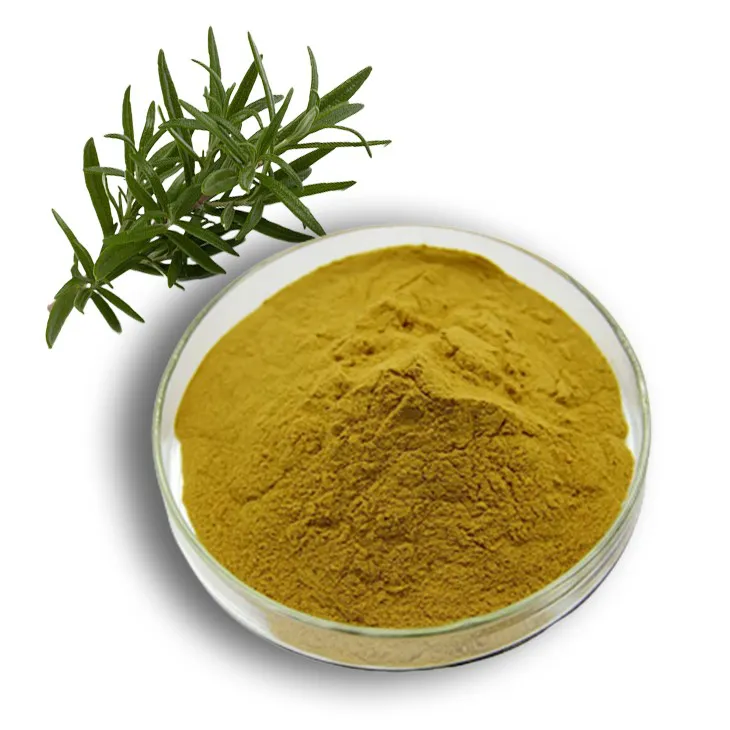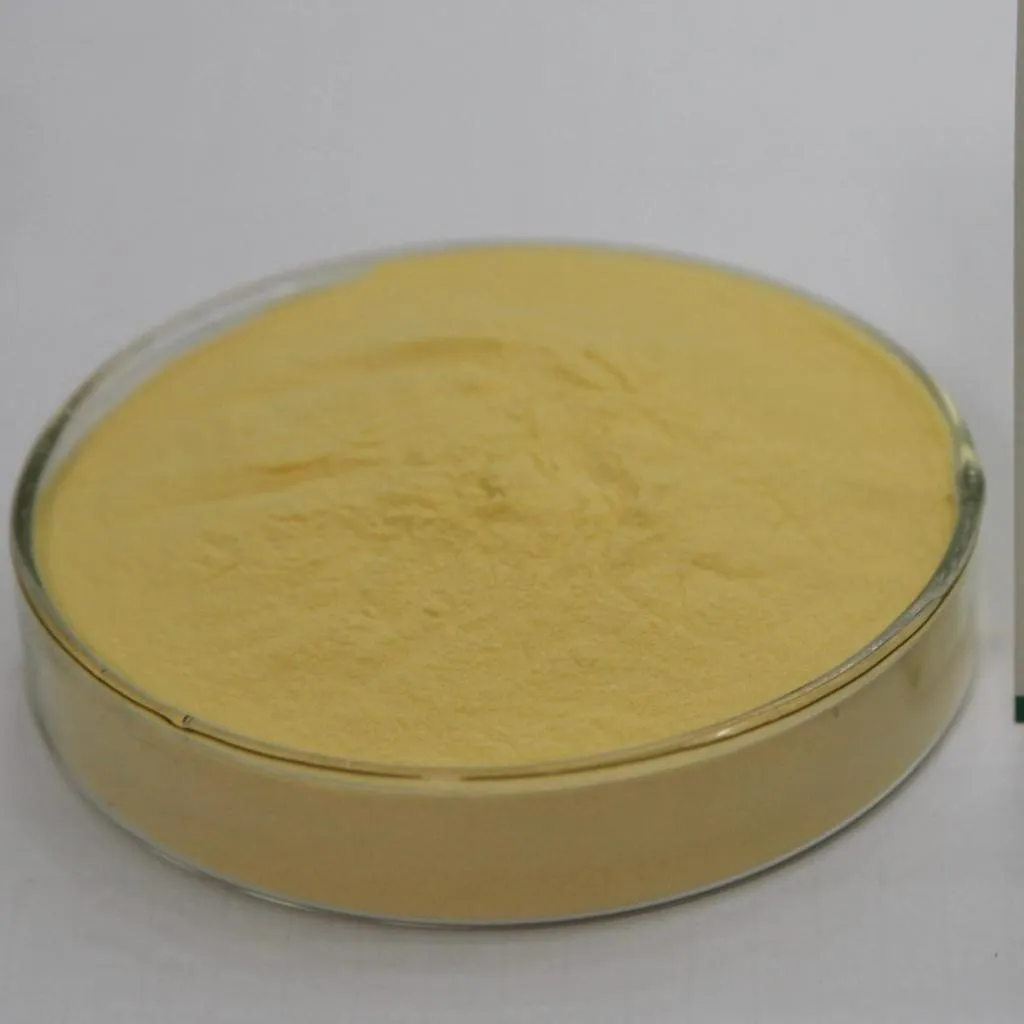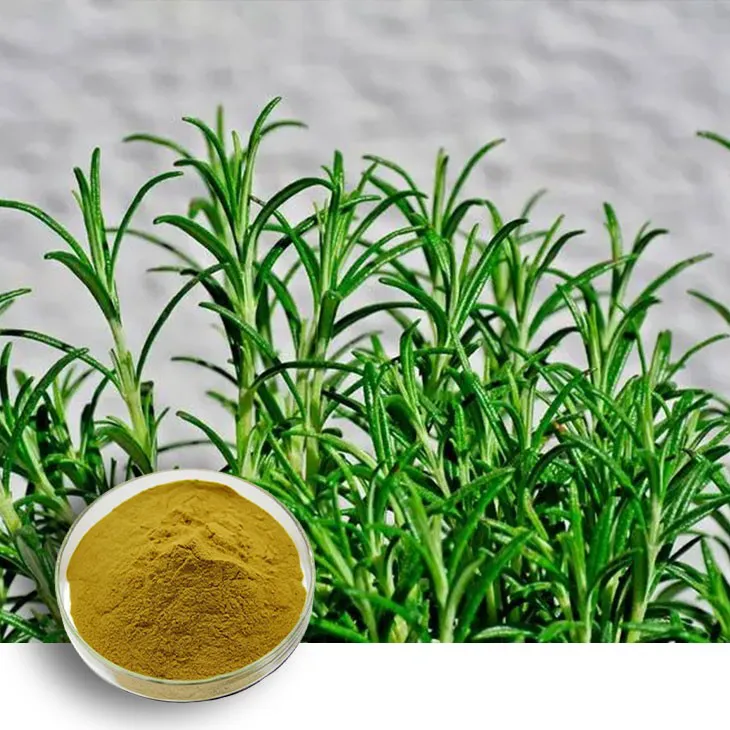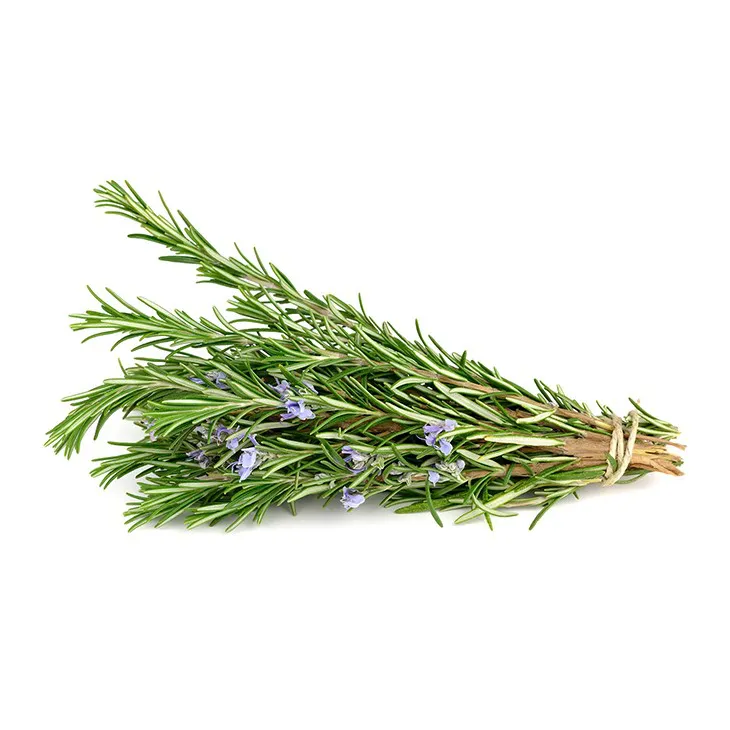- 0086-571-85302990
- sales@greenskybio.com
Supercritical Carbon Dioxide Extraction of Rosemary Extract.
2024-12-01

1. Introduction
Rosemary (Rosmarinus officinalis) is a well - known herb that has been used for centuries in various applications. It is native to the Mediterranean region and is now cultivated worldwide. The plant contains a rich variety of bioactive compounds, which make it a valuable source for extraction. Supercritical carbon dioxide (scCO₂) extraction has emerged as a very promising method for obtaining Rosemary extract. This extraction technique has revolutionized the way natural products are isolated due to its numerous advantages over traditional extraction methods.

2. Rosemary: A Rich Source of Bioactive Compounds
Rosemary contains a wide range of bioactive compounds. These include phenolic diterpenes, such as carnosic acid and carnosol, which are known for their strong antioxidant properties. Flavonoids like rosmarinic acid are also present in significant amounts. These compounds have been studied for their potential health benefits, including anti - inflammatory, antimicrobial, and antioxidant activities.
In addition to these, rosemary also contains essential oils. The main components of the essential oils are α - pinene, 1,8 - cineole, and camphor. These essential oils contribute to the characteristic aroma of rosemary and have their own set of biological activities, such as being insecticidal and having expectorant properties.

3. Supercritical Carbon Dioxide: An Ideal Extraction Medium
3.1 Physical Properties
Supercritical CO₂ has unique physical properties that make it suitable for extraction. It has a relatively low critical temperature (31.1°C) and a critical pressure (73.8 bar). These values mean that the extraction can be carried out under relatively mild conditions compared to other extraction solvents. Mild extraction conditions are crucial as they help in preserving the natural properties of the compounds being extracted. For example, heat - sensitive compounds in rosemary can be extracted without significant degradation.
3.2 Selectivity
The selectivity of supercritical CO₂ extraction can be easily adjusted. This is achieved by changing the pressure and temperature conditions during the extraction process. By carefully controlling these parameters, it is possible to separate different classes of compounds from rosemary. For instance, at a certain pressure and temperature, it may be possible to preferentially extract phenolic diterpenes over flavonoids or essential oils. This selectivity is a great advantage as it allows for the production of extracts with a specific composition tailored to different applications.
3.3 Environmental and Safety Benefits
Supercritical CO₂ is a non - flammable, non - toxic, and environmentally friendly solvent. It does not leave any harmful residues in the final extract, which is of great importance for applications in the food, cosmetic, and pharmaceutical industries. Additionally, since CO₂ is a by - product of many industrial processes, its use as an extraction solvent can contribute to reducing greenhouse gas emissions if sourced from these waste streams.

4. The Supercritical CO₂ Extraction Process for Rosemary extract
4.1 Pretreatment of Rosemary
Before the extraction process, rosemary needs to be properly pretreated. This typically involves drying the plant material to a suitable moisture content. Drying helps in reducing the water content, which can interfere with the extraction process. The dried rosemary can be further ground to a fine powder to increase the surface area available for extraction. This step is important as it can significantly improve the extraction efficiency.
4.2 The Extraction Setup
The supercritical CO₂ extraction system consists of a high - pressure pump, an extraction vessel, a separator, and a CO₂ reservoir. The dried and ground rosemary is placed in the extraction vessel. CO₂ is then pumped from the reservoir to the extraction vessel, where it is heated and pressurized to reach its supercritical state. In the supercritical state, CO₂ behaves like a liquid - gas hybrid, allowing it to effectively dissolve the bioactive compounds from rosemary.
4.3 Separation and Collection of the Extract
After the extraction, the supercritical CO₂ - extract mixture is passed through the separator. By reducing the pressure and/or changing the temperature in the separator, the CO₂ reverts to its gaseous state, leaving behind the extracted compounds. The gaseous CO₂ can be recycled back to the reservoir for reuse in the extraction process. The extracted rosemary compounds are then collected and further processed if necessary, such as purification or concentration.

5. Quality of the Rosemary extract Obtained by Supercritical CO₂ Extraction
The rosemary extract obtained by supercritical CO₂ extraction is of superior quality compared to extracts obtained by traditional methods. The mild extraction conditions help in preserving the integrity of the bioactive compounds. For example, the antioxidant activity of the phenolic diterpenes and flavonoids in the extract is maintained at a high level. The absence of harmful solvent residues also makes the extract more suitable for applications in sensitive industries like food and pharmaceuticals.
Furthermore, the selectivity of the extraction process allows for the production of extracts with a more defined composition. This means that the extract can be tailored to have a higher concentration of specific bioactive compounds depending on the desired application. For example, an extract for use in skin - care products may be enriched in compounds with anti - aging properties, while an extract for use in food additives may be concentrated in antioxidant - rich compounds.
6. Applications of Rosemary Extract
6.1 Food Industry
Rosemary extract has significant potential in the food industry. Due to its high antioxidant content, it can be used as a natural preservative to extend the shelf - life of food products. Antioxidants in rosemary extract prevent the oxidation of fats and oils, which is a major cause of rancidity in food. It can be added to various food products such as meat, fish, oils, and baked goods. In addition to its antioxidant properties, the antimicrobial properties of rosemary extract can also help in reducing the growth of spoilage - causing microorganisms in food.
6.2 Cosmetic Industry
In the cosmetic industry, rosemary extract is finding increasing use. The antioxidant and anti - inflammatory properties of its bioactive compounds make it suitable for skin - care products. It can be used in creams, lotions, and serums to protect the skin from oxidative stress and reduce inflammation. For example, carnosic acid and carnosol have been shown to have potential anti - aging effects on the skin. The essential oils in rosemary extract also contribute to its pleasant aroma, which is an added advantage in cosmetic products.
6.3 Pharmaceutical Industry
The pharmaceutical industry is also exploring the potential of rosemary extract. The bioactive compounds in rosemary have been studied for their potential in treating various diseases. For example, the anti - inflammatory properties of rosmarinic acid may be beneficial in the treatment of inflammatory diseases such as arthritis. Additionally, the antioxidant properties of the extract may have implications in preventing or treating certain oxidative - stress - related diseases. However, more research is needed to fully understand the pharmacological potential of rosemary extract and to develop effective drug formulations based on it.
7. Conclusion
Supercritical carbon dioxide extraction of rosemary extract is a highly promising technology. It offers a way to obtain high - quality rosemary extract with a range of bioactive compounds. The advantages of supercritical CO₂ as an extraction medium, such as its mild extraction conditions, selectivity, and environmental friendliness, make it an ideal choice for the extraction of rosemary. The resulting extract has diverse applications in the food, cosmetic, and pharmaceutical industries. As research in this area continues to progress, it is expected that the use of supercritical CO₂ extraction for rosemary and other natural products will become even more widespread and refined, leading to the development of new products and applications.
FAQ:
What are the main advantages of using supercritical CO₂ for rosemary extract extraction?
Supercritical CO₂ has a low critical temperature and pressure, enabling gentle extraction conditions. This helps maintain the natural properties of rosemary extracts. Also, its selectivity can be adjusted, which is beneficial for separating different classes of compounds.
What are the potential applications of rosemary extract obtained by supercritical CO₂ extraction?
The rosemary extract can be used in antioxidant - rich food additives, skin - care products in cosmetics, and herbal remedies in the pharmaceutical industry.
How does the selectivity of supercritical CO₂ extraction work for rosemary extract?
The pressure and temperature conditions in supercritical CO₂ extraction can be adjusted. Different compounds in rosemary have different solubilities under various pressure - temperature combinations. By carefully controlling these conditions, it is possible to selectively dissolve and separate different classes of compounds.
What makes supercritical CO₂ a good extraction medium for rosemary?
As mentioned before, its low critical temperature and pressure provide gentle extraction conditions, and its adjustable selectivity allows for efficient separation of compounds. These characteristics combined make it a good extraction medium for rosemary.
How does supercritical CO₂ extraction ensure the quality of rosemary extract?
The gentle extraction conditions provided by supercritical CO₂ prevent the degradation or alteration of the natural compounds in rosemary. This, along with the ability to selectively extract desired compounds, results in a high - quality rosemary extract.
Related literature
- Supercritical Fluid Extraction of Rosemary: Influence of the Process Variables on the Antioxidant Activity of the Extracts"
- "Supercritical Carbon Dioxide Extraction of Bioactive Compounds from Rosemary (Rosmarinus officinalis L.)"
- "Optimization of Supercritical CO₂ Extraction of Rosemary (Rosmarinus officinalis L.) Extract and Evaluation of Its Antioxidant and Antimicrobial Activities"
- ▶ Hesperidin
- ▶ Citrus Bioflavonoids
- ▶ Plant Extract
- ▶ lycopene
- ▶ Diosmin
- ▶ Grape seed extract
- ▶ Sea buckthorn Juice Powder
- ▶ Fruit Juice Powder
- ▶ Hops Extract
- ▶ Artichoke Extract
- ▶ Mushroom extract
- ▶ Astaxanthin
- ▶ Green Tea Extract
- ▶ Curcumin
- ▶ Horse Chestnut Extract
- ▶ Other Product
- ▶ Boswellia Serrata Extract
- ▶ Resveratrol
- ▶ Marigold Extract
- ▶ Grape Leaf Extract
- ▶ New Product
- ▶ Aminolevulinic acid
- ▶ Cranberry Extract
- ▶ Red Yeast Rice
- ▶ Red Wine Extract
-
Honeysuckle Pollen
2024-12-01
-
Golden Seal Extract
2024-12-01
-
Motherwort Extract
2024-12-01
-
Tongkat Ali Extract Powder
2024-12-01
-
Artichoke Leaf Extract
2024-12-01
-
Andrographis Paniculata Extract Powder
2024-12-01
-
Dandelion Root Extract
2024-12-01
-
Hawthorn powder
2024-12-01
-
Elderberry Extract
2024-12-01
-
Mulberry Extract
2024-12-01





















